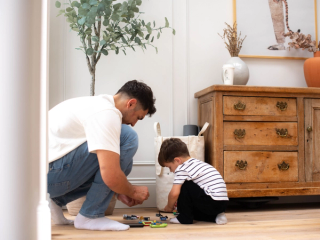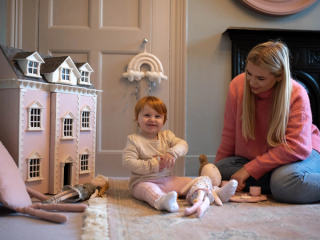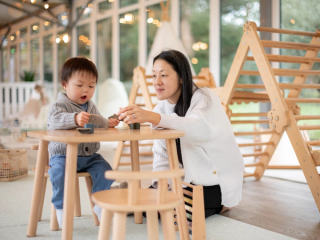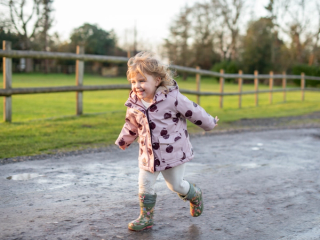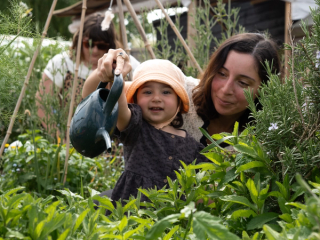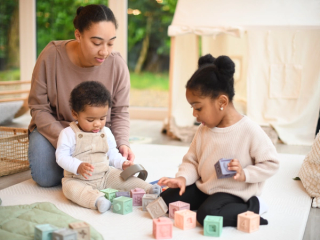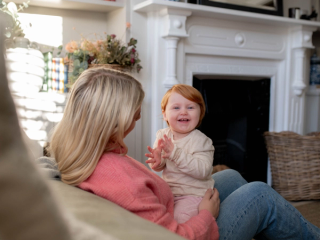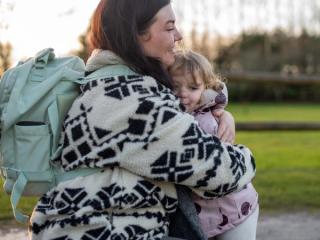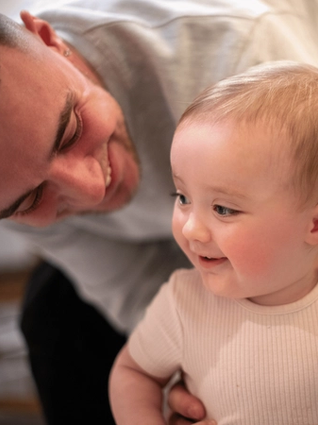
- Home
- Advice Hub
- Toddler
- Toddler Milestones
- Understanding Speech Development In Babies And Toddlers
Understanding speech development in babies and toddlers
Learn key milestones, signs of speech and language differences, and steps to support your child, including early intervention strategies.
As a parent, it's natural to closely monitor your child’s speech and language development. You might notice differences between your child and their peers and wonder if there's cause for concern. Understanding the typical milestones and recognising signs of potential differences are important steps towards supporting your child's development. Here's a guide to help you navigate this journey.
What are speech and language differences?
Every child develops at their own pace, but there are general developmental milestones for speech and language that most children achieve by certain ages. These include babbling by around 6 months, saying simple words like "mama" or "dada" between 10-15 months, and starting to combine words by 18-24 months. If your child consistently ‘misses’ these milestones or shows difficulty understanding or using language, it could indicate a that they are following a different pattern of speech or language development and may need additional support in this area.
For more information about what speech and language skills to expect at different ages see:
What are the signs of speech and language differences?
You may notice that your child’s speech and language development appears to be following a different pattern of development compared to their peers. You might notice differences in their vocabulary, ability to put words together, unclear speech sounds, or struggles to understand simple instructions. If you're concerned, trust your instincts and monitor your child's progress closely.
What steps should you take?
- Discuss your observations: Start by sharing your observations with your Health Visitor, GP or your child's childcare setting. They can offer insights and guidance based on their assessments.
- Agree on an action plan: Collaborate with your child’s ‘team’ to create an action plan tailored to their needs. Set specific goals and establish a timeline for reviewing progress.
- Support at home: Learn techniques to support your child's speech and language development at home. For more information about how to support your child’s speech and language development see here
- Consider speech and language therapy: If additional support is needed, ask your Health Visitor, GP or your child’s childcare setting about a referral to a Speech and Language Therapist. Early intervention can be highly effective in addressing speech and language challenges.
- Explore other referrals: Depending on the situation, your healthcare provider might recommend further assessments by an audiologist or community paediatrician to investigate or rule out any underlying issues.
Early intervention
Every child develops uniquely, and some variations in speech and language milestones are normal. However, early intervention can make a significant difference if there are concerns about your child's development.
- Early intervention works: In the first five years of life, children experience rapid brain development and if we offer them support during this time, they are more likely to make substantial and fast progress, which will support them to thrive in later life.
- Early intervention means proactively supporting a child: It involves teamwork! Even if your child is waiting for specialist support from a speech and language therapist, there are still plenty of things that parents, friends, family and childcare settings can do every day to support their speech and language development.
- Early intervention does not stop at five! It’s true, the younger a child is, the more rapidly their brain is developing, but their capacity for learning does not stop the moment they hit their fifth birthday! Offering your child support as soon as you notice they need it is going to be hugely beneficial, regardless of their age.
By staying informed, seeking professional advice when needed, and actively engaging in your child's communication development, you're taking important steps towards nurturing their language skills. Your involvement and proactive approach can positively impact your child's journey to confident communication.
Advice & tips

Want to read more? Join the HiPP BabyClub for full access to this article.
As a BabyClub member, you'll get access to a range of exclusive benefits, including:
Monthly competitions
Discounts from our Partners
Expert advice tailored to your little one's age
Weaning recipes
HiPP shop discounts*
*10% off HiPP's online shop does not apply to our First Infant, Anti-Reflux or Comfort Formula Milk.
Important notice: Breastfeeding is best. Follow on milk should only be used as part of a mixed diet from 6 months. Talk to a healthcare professional.





